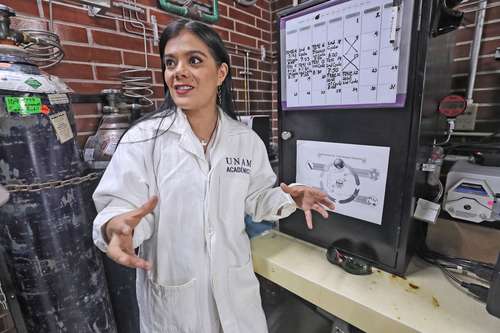At the Materials Research Institute (IIM) of the National Autonomous University of Mexico, Laboratory 6 is a hub of activity for researchers like Karen Valencia García. Under the mentorship of Sandra Elizabeth Rodil Posada, they are developing a green method for sustainable hydrogen production. The goal is to create an alternative to fossil fuels that contribute to climate change and health problems.
Valencia García, with a background in materials science and engineering, recently completed a groundbreaking doctoral thesis on the preparation of the CdS/g-C3N4 heterojunction and its photocalytic properties. This research has been recognized as the best thesis in the field for 2023 by UNAM. The focus is on harnessing solar energy to produce hydrogen, which only generates water vapor upon combustion.
Valencia García’s dedication to her research is evident in her disciplined daily routine, starting at 5 a.m. and working in the lab until 6 p.m. Her curiosity and passion for nature have been driving forces in her work to address the challenges of climate change. With the success of their initial research, the team is now exploring the possibility of using dirty water or contaminants to generate hydrogen and degrade waste.
The potential impact of this research is significant in moving towards a more sustainable energy future. By reducing our reliance on hydrocarbons and developing cleaner methods for hydrogen production, Valencia García and her colleagues are contributing to the global effort to combat climate change. Their work exemplifies the importance of sustainable practices in scientific research and development.


:quality(75)/cloudfront-us-east-1.images.arcpublishing.com/elcomercio/KDDOMJCZLNGGBM7OVO7A46KWA4.jpg)
